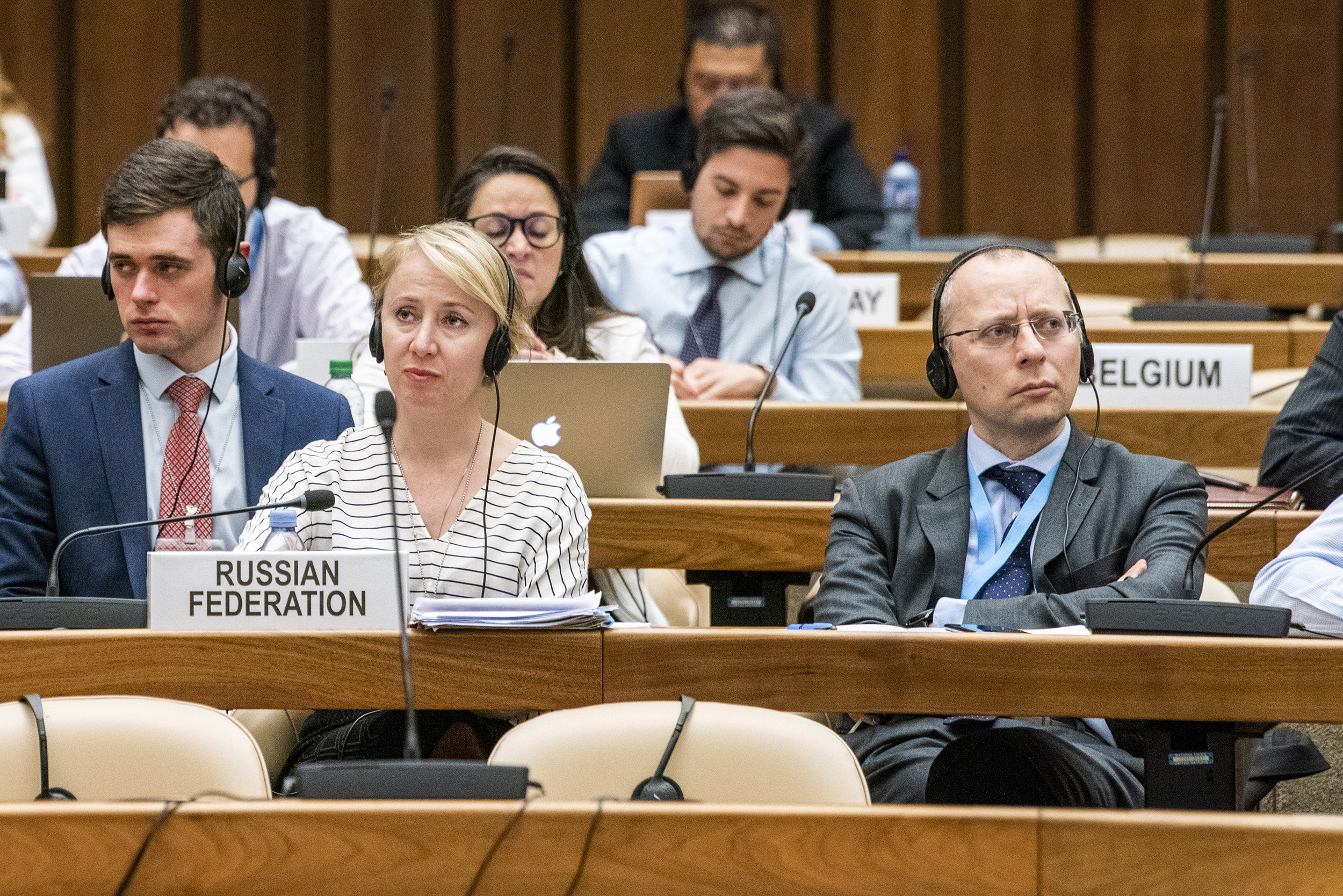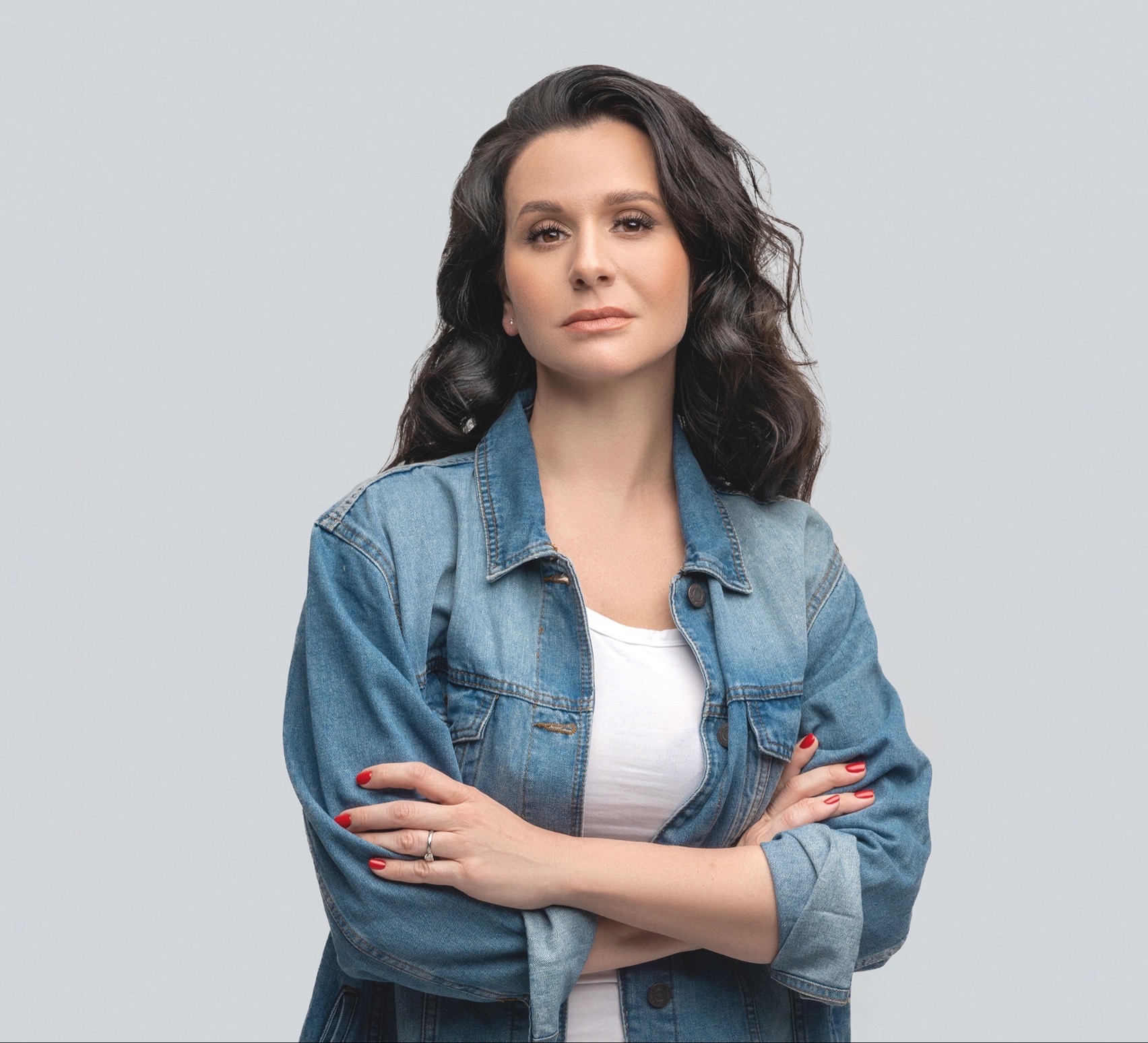
Oleg Radzinsky: ‘I hope Alexei Navalny’s death will wake up Western politicians’

Many Russian dissidents in Switzerland have paid tribute to Alexei Navalny, who died aged 47 in a Russian prison on Friday. Navalny had repeatedly accused Switzerland of complacency towards oligarchs and the Russian regime. Oleg Radzinsky and Mikhail Shishkin, two Russian writers living in Switzerland, react exclusively for SWI swissinfo.ch.
“Alexei Navalny was not afraid of the Kremlin. But the Kremlin was afraid of Alexei Navalny. He was killed by Putin’s regime. It was a cowardly and underhand assassination of a man who was dangerous for the regime. I hope Alexei Navalny’s death will wake up Western politicians.” Russian dissident and writer Oleg Radzinsky, himself a survivor of the Russian prison system, does not mince his words in denouncing Navalny’s death.
Mikhail Shishkin, another Russian writer living in Switzerland, reacted with the same emotion. “Navalny has been killed. The regime can’t allow a single one of its subjects to disagree: the people must shut up and rejoice at every word the leader utters. They tried to poison him, but it didn’t work, so they executed him in spectacular fashion,” Shishkin said.
Navalny was poisoned in August 2020 and sought treatment in Germany before returning to Russia in February 2021. He was arrested immediately. He was serving several prison sentences, including one for extremism. By the end of 2023 he had been transferred to a penitentiary in Siberia.
Navalny was not only a tireless critic of President Vladimir Putin’s regime, but he also pointed the finger at Switzerland on numerous occasions as “a convenient place for corrupt people”. In particular, he accused the country of undermining the fight against corruption in Russia.
In an interview with the SonntagsZeitungExternal link in 2020, he criticised the federal attorney general at the time, Michael Lauber, for having too close links with the Russian prosecutor’s office.
In the same interview, Navalny also mentioned the Artem Chaika affair, referring to the son of the former Russian Prosecutor General, Yury Chaika, who “arrived in Geneva with two million dollars” without “anyone asking him any questions”. In 2016 the Swiss Office of the Attorney General closed the case after an investigation by the federal police.
Navalny had also revealed through his anti-corruption foundationExternal link that Lauber often travelled to Russia to visit his Russian counterpart. In particular, he mentioned a trip on an ocean liner and hunting trips. In his view, this relationship hampered “important investigations into money laundering in Switzerland”.
These criticisms of the Swiss financial system are shared by Mikhail Shishkin, who is also known for his criticism of Swiss banks.
“All attempts by Alexei Navalny and his foundation to expose Russian criminals who have contributed millions to Swiss banks have met with opposition [from Switzerland] or, at best, inaction. Unfortunately, Putin’s regime has also prospered thanks to Swiss complacency,” he said.

More
Russian author accuses Switzerland of facilitating Ukraine war
The death of Navalny, a fierce and highly publicised opponent of Vladimir Putin, in a Russian prison provoked reactions around the world.
“Switzerland is dismayed by the death of Alexei Navalny, an exemplary defender of democracy and fundamental rights. It expects an investigation will be opened into the causes of his death. Our condolences and thoughts are with his family,” tweeted the Swiss foreign ministry.
“I had similar feelings when [Soviet and Russian journalist Vladislav] Listyev was killed [in 1995],” former Russian diplomat Boris Bondarev told SWI swissinfo.ch on learning of Navalny’s death. Bondarev was the former adviser to the Russian mission to the United Nations in Geneva; he resigned following the Russian invasion of Ukraine. He currently resides in Switzerland.

More
Boris Bondarev: the Kremlin sees Switzerland as under US orders
“The Swiss authorities should have done less to befriend corrupt Russian leaders, less to accept money from oligarchs and – above all – more to supply arms to Ukraine,” he said.
Commemorative events in memory of Alexei Navalny are taking place all over the world, including in Switzerland, in Zurich and Geneva.

More
Alexei Navalny: spontaneous memorial events held in Switzerland
Mikhail Shishkin: ‘The smell of Russian money didn’t bother the Swiss’
In answer to the question of how to teach democracy, there is only one answer: by example. Could Switzerland have helped the young Russian democracy of the 1990s get back on its feet? Yes. The Russian population wanted to live as they did in Switzerland, but they had no historical experience of life under the rule of law. What has Europe’s leading democracy shown the Russians? When it comes to large sums of money, the rule of law comes to an end. The Russian criminal dictatorship thrived thanks to the support of Swiss banks and Swiss lawyers.
At the time I was a translator and I personally observed how the Swiss machine for laundering dirty money from Russia worked. The smell of Russian money didn’t bother the Swiss at all.
The rule of law is simple: if you break the law, you go to prison. I’ve seen it work in Switzerland, if you steal a wallet on a tram. If you’ve stolen from a whole country, your millions will be welcomed by the bankers, the lawyers and the officials of the supervisory bodies.
Alexei Navalny and his Anti-Corruption Foundation have been confronted with this in their experience. All their attempts to expose the Russian criminals who contributed millions to Swiss banks were met with opposition [from Switzerland] or, at best, inaction. Unfortunately, Putin’s regime has also prospered thanks to Swiss complacency.
Now Navalny has been killed. The regime cannot allow a single one of its subjects to disagree: the people must shut up and rejoice at every word the leader utters. They tried to poison him, but it didn’t work, so they executed him in spectacular fashion.
And Switzerland bears some responsibility for the emergence of this dictatorship in Russia, which brings death and misfortune to its people and to the whole world. Democracy is not just a sign, it’s a daily struggle.”
Mikhail Shishkin has lived in Switzerland since 1995. In 2000 he was awarded the Zurich Canton Prize for Russian Switzerland.
Oleg Radzinsky: ‘Alexei Navalny was not afraid of the Kremlin’
“Alexei Navalny was not afraid of the Kremlin. But the Kremlin was afraid of Alexei Navalny. He was killed by Putin’s regime. No argument about the ‘natural causes’ of Navalny’s death is acceptable, because artificially hostile living conditions had been created for him for years.
This was a cowardly and underhand assassination of a man who was dangerous to the regime. He was poisoned with Novichok, arrested when he returned home to Russia after treatment in Germany, sentenced to one prison term after another. His conditions of detention were tightened; he was repeatedly sent to a psychiatric unit, tested to the extreme. And he endured it all – a man of unprecedented personal and civic courage. Alexei Navalny endured everything to the end.
Unfortunately, unlike him, Western politicians, including the Swiss, cannot say the same: while Putin and his henchmen continued to destroy the opposition, killing and imprisoning those who dared to protest against their crimes, Putin’s Western ‘partners’ continued to buy Russian oil, gas and metals, grant residence permits to beneficiaries of the Russian regime and store their money in their banks.
Such a lack of principles led Putin to feel totally unpunished and all-powerful and, after repressing his own people, he moved on to military aggression against the Ukrainian people.
I hope the death of Alexei Navalny will wake up Western politicians and that they will find in themselves the strength and courage to resist evil – Putin’s dictatorship and aggression. Alexei Navalny was not afraid of the Kremlin. And that’s why the Kremlin was afraid of Alexei Navalny.”
Oleg Radzinsky is a writer and Soviet dissident who served five years in prison and in Siberia “for anti-Soviet agitation and propaganda”. He emigrated to the United States after his release and now lives between Switzerland and the United Kingdom. His novels include ‘Surinam’ and ‘Random Lives’. In September 2023 he was accused of being “a foreign agent” by the Russian authorities.
Edited by Virginie Mangin. Translated from French by DeepL/ts

In compliance with the JTI standards
More: SWI swissinfo.ch certified by the Journalism Trust Initiative































You can find an overview of ongoing debates with our journalists here . Please join us!
If you want to start a conversation about a topic raised in this article or want to report factual errors, email us at english@swissinfo.ch.